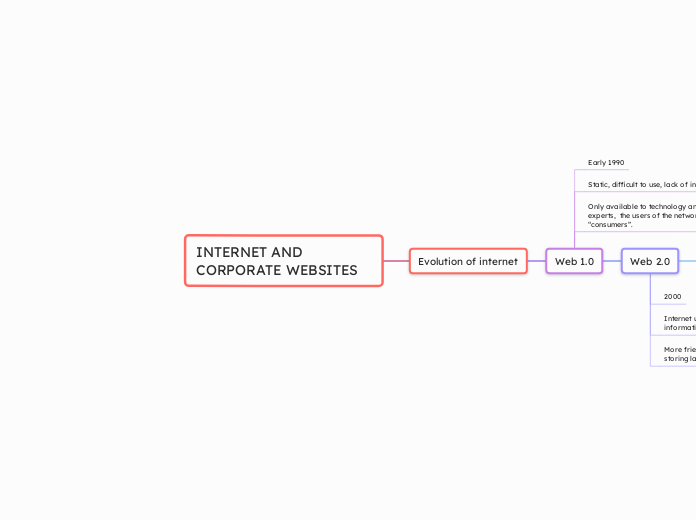INTERNET AND CORPORATE WEBSITES
Evolution of internet
Web 1.0
Early 1990
Static, difficult to use, lack of information
Only available to technology and computer experts, the users of the network were “consumers”.
Web 2.0
2000
Internet users became digital content producers, information on websites was constantly changing.
More friendly and simple design, possibility of storing large amounts of information.
WEBSITES
Became more dynamic and allowed users to develop more interactivity and improve their networking experience.
A website is considered a document created on an HTML 5 programming version and is available or hosted on the Internet, accessible through a web navigator
Designed for a specific purpose and collect and organize the information they want to display through an attractive, well-crafted and orderly design
CORPORATE SCHOOL WEBSITES
Shows the basic elements that the educational institution offers to families and students.
In terms of design, for Colás Elizalde (2019), the pages of these educational institutions must adequately structure the content and offer an optimal quality of multimedia elements.
With regard to the functionality of the school web portal, there are three types of trends.
1. The design of the websites aims to collect and display as many content as possible.
2. This virtual space is primarily oriented towards the commercial development or marketing of the school, sometimes showing a partial image.
3. The website has a more communicative purpose and establishes different communication mechanisms, especially through various Web 2.0 resources.
When a school website has a well-defined purpose, both presentation and organization, they are more likely to please visitors, in this case families.
